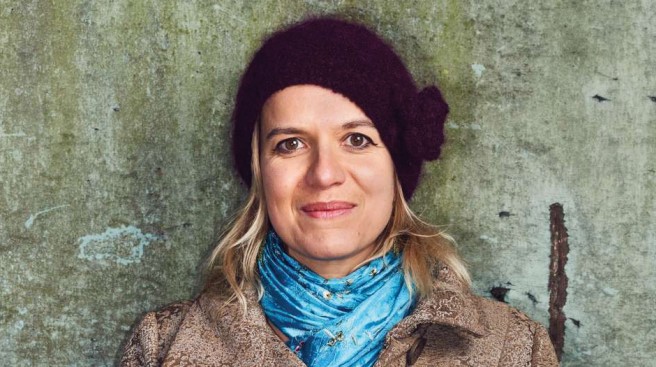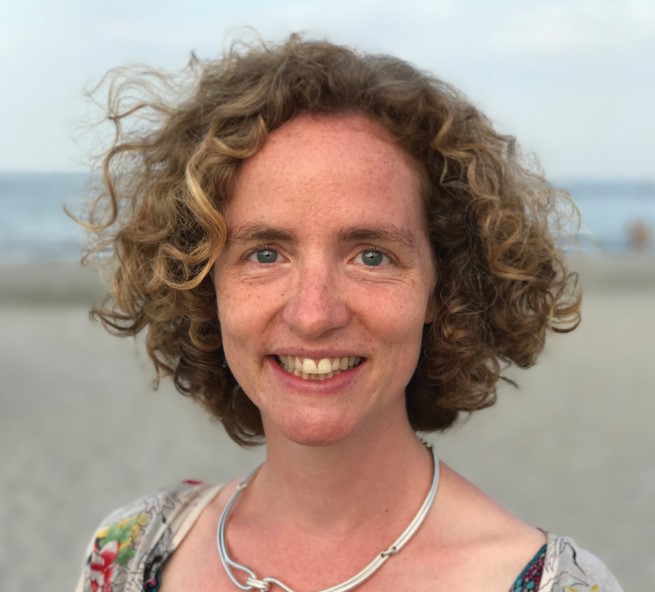Time to say ‘Adiós Corona’ - MCAA Magazine News January 2021
Useful advice, recommendations and a digest of all the latest scientific studies about the COVID-19 pandemic can be found on the new Adiós Corona website. Run by researchers and doctors, the site was launched by Virginie Courtier-Orgogozo and Claire Wyart. They tell us more about this initiative.

Claire, in her own words
I am trained in Biophysics and Neuroscience and lead a team of 12 researchers at the Paris Brain Institute. On a personal level, I am a mother of three and my 15-year-old son Uzay in high school loves coding and contributed to our initiative by generating the website.
Virginie, in her own words
I am a researcher in Genetics and Evolution. I lead a team of six researchers at the Institute Jacques Monod in Paris. I am a mother of two. I love to inspire students and promote critical thinking and knowledge of biology.

SPREADING COVID-19 INFORMATION
Creating a website to spread information related to COVID-19, particularly for the general public, appeared as the most obvious answer for this scientific duo. Claire had recently set up a website (for the Zenith Marie SkłodowskaCurie Actions (MSCA) initiative) so she was familiar with the process. She was, therefore, pleased to take on the creation of the Adiós Corona website together with her brother Olivier Wyart, graphic designer dedicated to the communication of science (https://headquarter.paris/HQ_Introduction).
The structure of the website is divided in two categories. The first, titled “Understanding Coronavirus,” contains sub-categories like Animals, Distancing, Hygiene, Masks and Propagation. The second category is titled “Acting in a COVID pandemic.” It includes sections dedicated to topics like how to wash our hands properly, how to take a taxi safely or how to have a meeting with friends with low risks of contamination. The “What’s new” section deals with questions and scenarios recently posted or updated by the Adiós Corona team.
The website was launched without a hitch. First in French and later in additional languages.
“It was fast launching the French version, once we had done a large part of the work like reading, writing and editing for the general public,” explains Claire.
“I had a few ‘to-do’ lists that I had already distributed to my family and neighbours, so the second part of the website “Acting in a COVID pandemic” was easy to launch,” recalls Virginie.
How should I wear my mask? How is it safe to take the elevator? How to best protect myself during a flight? Since the beginning of the COVID-19 pandemic, the public has been asking a lot of questions like these. Finding answers hasn’t always been easy.
Questions like these (and many more) were the starting point for the Adiós Corona website. This is how Virginie Courtier-Orgogozo and Claire Wyart, researchers and long-time friends, came up with the idea for the website. “We were aware and worried about the pandemic hitting Europe in February,” explained Virginie. “During a phone conversation, soon after the lockdown was announced in March, we both realised that people were not aware of the danger, and that factual information based on scientific studies was missing or not explained properly to the general public.”
20 EDITORS, 20 TRANSLATORS, 10 LANGUAGES
The website knows no borders. It was designed to reach not only the French-speaking public, but people all around the world.
We wanted our initiative to be international, like the pandemic.
Claire Wyart
“Each country and each culture brings its own approaches to deal with the pandemic. Combining several views can help to find a better way out. We decided to write our texts in French for an international public and to translate them into 10 languages.”
The Adiós Corona website can be read in Arabic, Indonesian, Italian, English, German, Greek, Portuguese, Russian, Spanish and Turkish. “Texts are automatically translated from French with Weglot, and then our team of translators revises,” adds Claire.
The website brings together 40 scientists and involves 20 editors and just as many translators, plus the team is growing. “It is very nice to see scientists emailing us to join. We are very happy to welcome newcomers, there is so much to do,” says Virginie.
As is the case with all multilingual websites, there are challenges. First on the list is making sure the content is always up-to-date, in all languages. Virginie notes: “The biggest challenge for us is to find the time to analyse recent literature, to check our readers’ emails, to update the content, to manage the Adiós Corona group, to interact with journalists and to be active on social media. We also have a lab to run and a family to take care of!”
So far, Adiós Corona has received much positive feedback from its users. A section gathering testimonials is available on the website. The reviews are a sign of the growing community.
A CARTOON FOR ‘LES CORONAGIRLS’
The story behind the website was recently illustrated by Fiamma Luzzati, an Italian cartoonist based in France. The cartoon was published in the French newspaper Le Monde.
Asked about this creative collaboration, Claire explains: “Fiamma wanted to show our altruistic initiative, and how we contributed to the Paris Brain Institute with Marie Claude Potier, to share information and promote simple COVID-19 tests based on autonomous sampling, using saliva instead of nasal swabs.”
FAREWELL, CORONA?
Looking into the future, both Claire and Virginie are hopeful their website will reach the greatest number of people possible. “I’d like our website to help the public more, by better reaching policymakers at the local level. Until safe and effective vaccination become available for a majority of us, we should avoid a third wave via mass testing with tracing and isolation. Sampling saliva and pooling samples, as it has been done in the city of Qingdao in China, is an effective way out of the crisis this winter” says Claire.
“I hope our website will reassure people,” adds Virginie. “We know enough now to accurately evaluate the risks of contamination and limit them as much as possible. I believe a collective effort is needed from all of us to fully get rid of this coronavirus. A few countries have succeeded. In Europe we are not there yet.”
MCAA Editorial Team